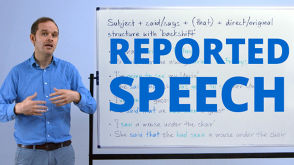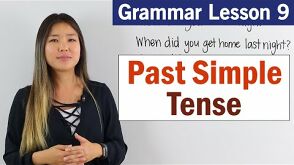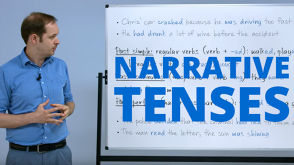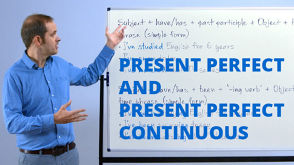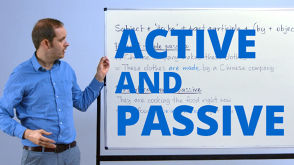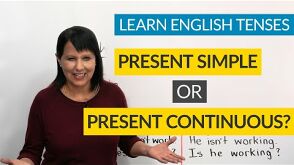Learn real English from movies and books.
Add words or phrases for learning and practice with other learners.
-
STEP 1Watch the video

-
STEP 2Do the exercises

-
STEP 3Add phrases you like to Favorites

Reporting verbs
- 00:00 / 00:00
Click on a word or highlight a phrase to see translation
Click on a word or highlight a phrase to see translation
Click "plus" to add word/phrase for learning
Click "plus" to add word/phrase for learning
Start learning
Start learning
Reporting verbs
When we want to tell someone else what somebody has told us, we often use reporting verbs, it is common for users of English to use say, tell and ask for questions to explain the direct speech (what somebody originally said). When we want to give more information about the direct speech we use reporting verbs. Reporting verbs explain how the speaker of direct speech was feeling or the function of the information they give to you. One of the issues that learners have with reporting verbs is that the actual meaning of the reporting verb is very important as it contains a lot of information so the user of reporting verbs must know what they mean. Another problem for learners is the form of sentences after the reporting verb is different depending on the reporting verb that has been chosen. Here we will look at three of the main patterns.
Reporting verbs: offer, promise, refuse
Form of reporting sentences using offer, promise or refuse:
Subject + reporting verb (not) + to infinitive
|
Direct speech |
Reporting sentence |
Explanation |
|
‘Could we carry your bags for you?' [an offer] |
They offered to carry my bags for me
|
When we use the reporting verb offer, the ‘to infinitive' form of the verb from the direct speech is used regardless of the form of the verb in the direct speech sentence. In this case carry becomes to carry. |
|
‘I promise I will buy you something nice when I get back' [a promise] |
He promised to buy me something nice when he got back |
Often with reporting verbs it important to think about how the tense of the direct speech needs to be changed (or not changed). In this sentence, will buy becomes to buy in reported speech |
|
‘I cannot and will not go to restaurant again' [a refusal] |
She refused to go to that restaurant again
|
One of the purposes of reported speech is to save time when we tell someone what someone else said. In this example, the speaker has expressed more information by using the reporting verb refuse |
Reporting verbs: suggest and recommend
Form of reporting sentences using suggest and recommend:
Subject + reporting verb (not) + -ing verb
|
Direct speech |
Reporting sentence |
Explanation |
|
‘Why don't we go for a walk?' [a suggestion] |
He suggested going for a walk
|
The direct speech is altered here by turning a verb into a gerund (go=going) as the speaker reports a suggestion that was made |
|
‘We don't think the cinema is a good idea' [a suggestion] |
We suggested not going to the cinema |
Again, a suggestion has been made and is being reported. Because the suggestion was negative, the word ‘not' goes in between the reported verb and the gerund |
|
‘You really should watch all the videos I've sent you' [a recommendation]
|
He recommended watching all the videos he had sent me
|
As with the reporting verb suggest, recommend is followed by a gerund so here the direct speech is changed and the tense from the direct speech sentence is also changed (from present perfect to past perfect) |
Reporting verbs: explain, promise and suggest
Form of reporting sentences using explain, promise and suggest:
Subject + reporting verb + (that) + object + clause
|
Direct speech |
Reporting sentence |
Explanation |
|
‘We can't accept your credit card here' [an explanation] |
They explained that they couldn't accept my credit card there
|
With this kind of reporting verb pattern, an object must be used after the reporting verb or that although that can be removed from reported speech sentences like this
|
|
‘I will definitely do all the washing up [a promise] |
He promised that he would do all the washing up |
|
|
‘Why don't we all go to the pub?” [a suggestion]
|
He suggested that we go to the pub
|
Similar video exercises
Click on a word or highlight a phrase to see translation
Click on a word or highlight a phrase to see translation
Click "plus" to add word/phrase for learning
Click "plus" to add word/phrase for learning



